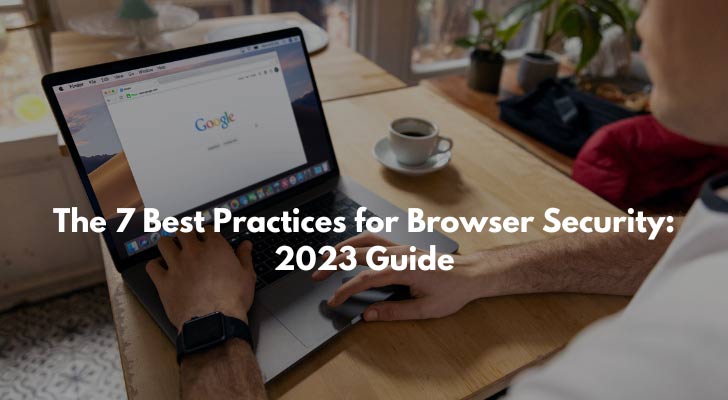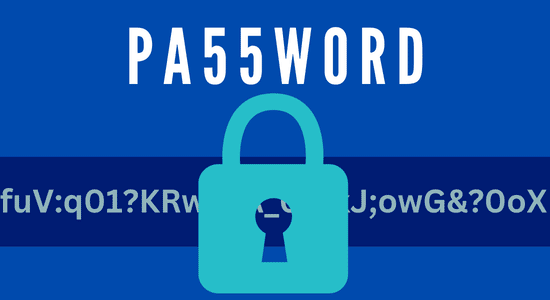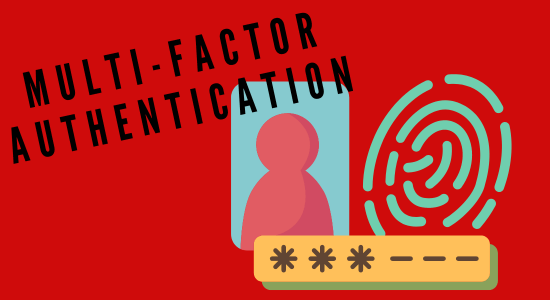Even if you use all the best browser security platforms in the world and have poor browsing practices, your data will still be stolen. How you use the internet matters a lot, and it can determine how successful a cyber attack is.
With the increasing rate of data breaches on the internet, one must be careful of how they use their browser while surfing the internet. Incorporating the best practices for browser security for enterprises and individuals will ensure their data is not stolen. Since there's always a change in the best practices, here's how you should use your browser in 2023 to ensure security.

1. Turn on HTTPS-Only Mode
HTTPS (Hypertext Transfer Protocol Secure) is a web protocol that allows information to be shared between two entities in an encrypted form. When information is encrypted in this manner, it prevents third parties from accessing such information. Most malicious sites often do not have HTTPS in their web protocol, which usually helps them access any data submitted on the website.
However, when an individual or an organization turns on HTTPS-Only Mode on their web browser, it enables them to gain access to sites with HTTPS only. Any other site that does not have HTTPS as part of its protocol will be banned from being accessed. This feature is usually available on enterprise and legacy browsers and should be turned on to prevent accidental entry to malicious sites.
2. Create Strong Passwords
Although hackers now have tools that make it possible to decipher passwords, you only make it easier for them when your password is not strong. According to reliable data, about 80% of data breaches happened because the data owners had weak passwords. When you have weak passwords, it makes it very easy for hackers to guess, especially if they have some personal details about you. Some people use their date of birth as their password, making it easy for hackers to guess.
Ensure your password is unique and long at the same time; your passwords should not be less than 12 characters. For instance, if your password is as simple as "1990," it will be very easy for cybercriminals to guess and crack it. However, if your password looks like "Fg%12IGER702$@*368HV29+," it will be incredibly difficult for hackers to crack it.

3. Update Your Browser
Some individuals or organizations use outdated browsers for as long as one year or above. Even if your browser is outdated for as early as one day, it makes it easier for cybercriminals to launch successful attacks against the browser. When you update a browser, it repairs any security weaknesses that may be available in the browser. If there are no security vulnerabilities, it increases the level of security in browsers.
But if you leave a browser outdated, it allows malicious elements to detect its vulnerabilities and use them to compromise the browser's security. You should always follow up with your browser provider to know when another update is released. If you don't want to do this manually, you can integrate browser security solutions such as LayerX to monitor and remind you of when to update the browser.
4. Don't Use Autofill Feature
Some tools on a web browser improve user experience but can also compromise your web security without you knowing about it. One of the tools people use is the autofill feature, which allows you to input your personal information without needing to type anything. Your password is usually immediately filled into the required space without your input.
While this surely improves user experience and productivity, it can be a channel that will help compromise your browser security. Hackers know that some users have this feature turned on, so they lure them to sites where their details are immediately filled up in the required spaces. But when you turn this feature off, you must input any sensitive information manually.
5. Use Enterprise Browser/Local Browser Isolation Platforms
Enterprise browsers focus on providing maximum web security for users by integrating different security technologies. Enterprise browsers are built with security as the major objective, meaning other aesthetics are often not considered. It is unlike regular browsers, where you have features that can compromise web security. Features in standard browsers, such as copy and paste, screen sharing, and many others, may not be found in this type of browser.
Using enterprise browsers is a growing trend in 2023, and it has so far ensured the security of most users. You can incorporate local browser isolation platforms if you don't want to move entirely to enterprise browsers. Local browser isolation isolates your browser from any endpoint that poses a security threat.
6. Use Two/ Multi-factor Authentication

Whatever you do in a browser, ensure you have two or multi-factor authentication to prevent unapproved access to your browser information. Authentication in a browser prevents a third party from signing into accounts that will grant them access to your data.
Start by locking up your browser with a password, preventing people from opening your browser without your permission. Enabling two/multi-factor authentication in sensitive accounts like Google accounts will prevent cyber criminals from unauthorized access even if they get access to your password.
7. Monitor and Review Your Browsing Activities
Monitoring and reviewing one's browsing activity is an action that people often overlook, but it is very important. Monitoring and reviewing your browsing activity will help you detect behaviors that would have compromised your browser's security.
Reviewing these browser activities will help you halt certain web browsing behavior. For instance, reviewing your web browsing activity will help you detect and prevent yourself from visiting websites without HTTPS.
Conclusion
Browsers are becoming increasingly targeted by cyber attackers trying to steal financial and other personal information. Some of the best browser security practices for 2023 include monitoring and reviewing browsing activities, disabling the auto-fill feature, and enforcing HTTPS-Only mode. Web users can also use enterprise browsers, install security plugins, and use multi-factor authentication.
How I "Finally" Make Over $7,000 Monthly Income
"The most valuable thing I've ever done!"
